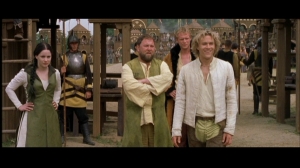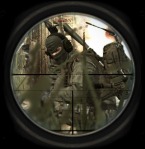There was once a bay with a great many sharp rocks lurking around its entrance, and many ships were lost upon them. And so the local town decided to build a lighthouse of stone and wood and place it on the cliffs to guide vessels to the harbour during storms.
It was not a mighty thing as the town was very poor, and the lighthouse knew that many of the ships scorned it for being so small and having such a puny light.
“The great lighthouses can be seen for dozens of miles,” they would scoff, “you are of use only to ships wishing to enter this bay, your glow is so minor.”
The little lighthouse was sad, for it did not have control over how tall it was built or how brightly its light shone. It would tell the ships so, but they were not interested to hear it speak. As the years went by, the little lighthouse by the bay grew used to being laughed at by the ships that went by.
“They are right to tease,” the little lighthouse would think, “as I am so small and my light is so dim.”
The seasons and the years came and went, with the little lighthouse standing on the cliff with its light burning for the ships that sailed past. Then one winter night a terrible storm blew up, and wind and rain lashed the ships and sent them scurrying into the bay for shelter with the little lighthouse to guide them.
The heavens raged and the little lighthouse was glad that all the ships were safely in his bay for he did not wish them harm.
“Be careful that the wind does not blow out your light,” jeered one of the ships. “He is quite safe, for the wind only blows over the tallest lighthouses and he is very small,” another joined in.
Then the little lighthouse saw, out at sea, a ship being tossed by the waves. It was a very fine ship indeed, with tall masts and a proud hull.
“Oh no,” thought the little lighthouse, “it shall surely be dashed against the rocks and lost!” And so the little lighthouse called out, expecting no reply as ships never listened to what the little lighthouse had to say.
“Be careful mighty ship!” The little lighthouse called urgently, “You are headed for the rocks!”
To the little lighthouse’s amazement the mighty ship changed its course and began to head for the bay. As it passed him, the mighty ship said:
“Thank you little lighthouse.”
Well, the little lighthouse was astonished. For a ship to talk to him! And not just any, but one so mighty as this!
The mighty ship continued to speak with the little lighthouse throughout the dark night. It had only praise for him and his light.
“Do not be sad, little lighthouse,” the mighty ship counselled, “you are as tall as you need to be and your light does its work well.”
The little lighthouse was very sad when the mighty ship left the bay when the dawn broke and the storm subsided, for he felt he would never see the mighty ship again.
And indeed he did not, for several years at least. The town grew as the little lighthouse brought ships safely to shore. More storms came and went, and the ships went on taunting the little lighthouse when they passed. But the little lighthouse never forgot the words of the mighty ship.
“They are unkind,” the little lighthouse thought, “but I do not care. I am as tall as I need to be and my light does its work well.”
Then one spring day the little lighthouse was delighted to hear the voice of the mighty ship again, greeting him as it sailed by and told him it was carrying new goods and would be visiting the little lighthouse regularly. The little lighthouse was overjoyed, and the two talked often throughout the long summer.
“I am glad to know you,” the little lighthouse said to the mighty ship.
“And I you, little lighthouse,” the mighty ship replied.
The mighty ship’s visit were frequent, and the little lighthouse would spend much of its time scanning the ocean for the mighty ship. So much time that it scarcely noticed the dockers loading the cargo of the mighty ship into carts, nor those carts carrying stone and wood along the cliffs at the far side of the bay.
The autumn came and it happened that the mighty ship took a different path out of the harbour after one of its visits. The little lighthouse watched the mighty ship as it left, and his eye fell upon the cliff at the far side of the bay.
There, nearly built, was another lighthouse! It was tall, at least twice as high as the little lighthouse and he supposed its light would be very bright indeed. The little lighthouse realised at last that the mighty ship was carrying the materials for the new lighthouse, and he was sad and angry.
“I thought the mighty ship cared for me!” The little lighthouse sobbed, “But he brings stone and wood for that other lighthouse which will be taller than I and shine far brighter than I.”
The little lighthouse thought and thought as the weeks went by, for he knew that the mighty ship would soon return with more cargo and that the lighthouse across the bay was so near to completion that it would surely be the last delivery the mighty ship would need to make.
The autumn was at its close when the mighty ship did return, heavy in the water with its holds bulging with goods. The sky was black with dark clouds, and wind and rain lashed at the mighty ship as it rounded the cove and saw the familiar light of the little lighthouse on top of the cliff.
The mighty ship began to enter the bay, when suddenly the guiding light of the little lighthouse disappeared.
“Little lighthouse! Little lighthouse! Your light has gone out and I need help or I will surely crash onto the rocks!” The mighty ship called out.
But the little lighthouse said nothing, did nothing. It heard the mighty ship continue to call for help, and then it heard a roaring, splintering crunch as the mighty ship crashed onto the rocks.
Then the little lighthouse turned its light back on, and saw the mighty ship laying on its side, its belly torn open, waves beating across its decks. Its tall masts were broken and its proud hull was shattered. Immediately the little lighthouse began to regret what it had done.
“Oh mighty ship! I am sorry! But how could you bring the stone and wood to build a new lighthouse to replace me? I thought we were friends!” The little lighthouse cried.
“Friends, little lighthouse?” Groaned the mighty ship, “You are a lighthouse and I am a ship. We could never have been friends. You did your work well and I did mine.”
The little lighthouse understood.
“I am sorry, mighty ship,” the little lighthouse said.
“I know, little lighthouse,” the mighty ship replied with a sigh. “I know.”
In the morning the townsfolk saw the mighty ship wrecked upon the rocks at the foot of the cliff below the little lighthouse. How foolish the mighty ship must have been to crash onto the rocks with the lighthouse there to guide it! And how angry they were that now there was no ship large enough to carry the goods needed to finish their new lighthouse.
But, they thought, it was not worth the expense of chartering a new large ship to bring the goods they needed. They had the little lighthouse after all, which had always done its work well.



